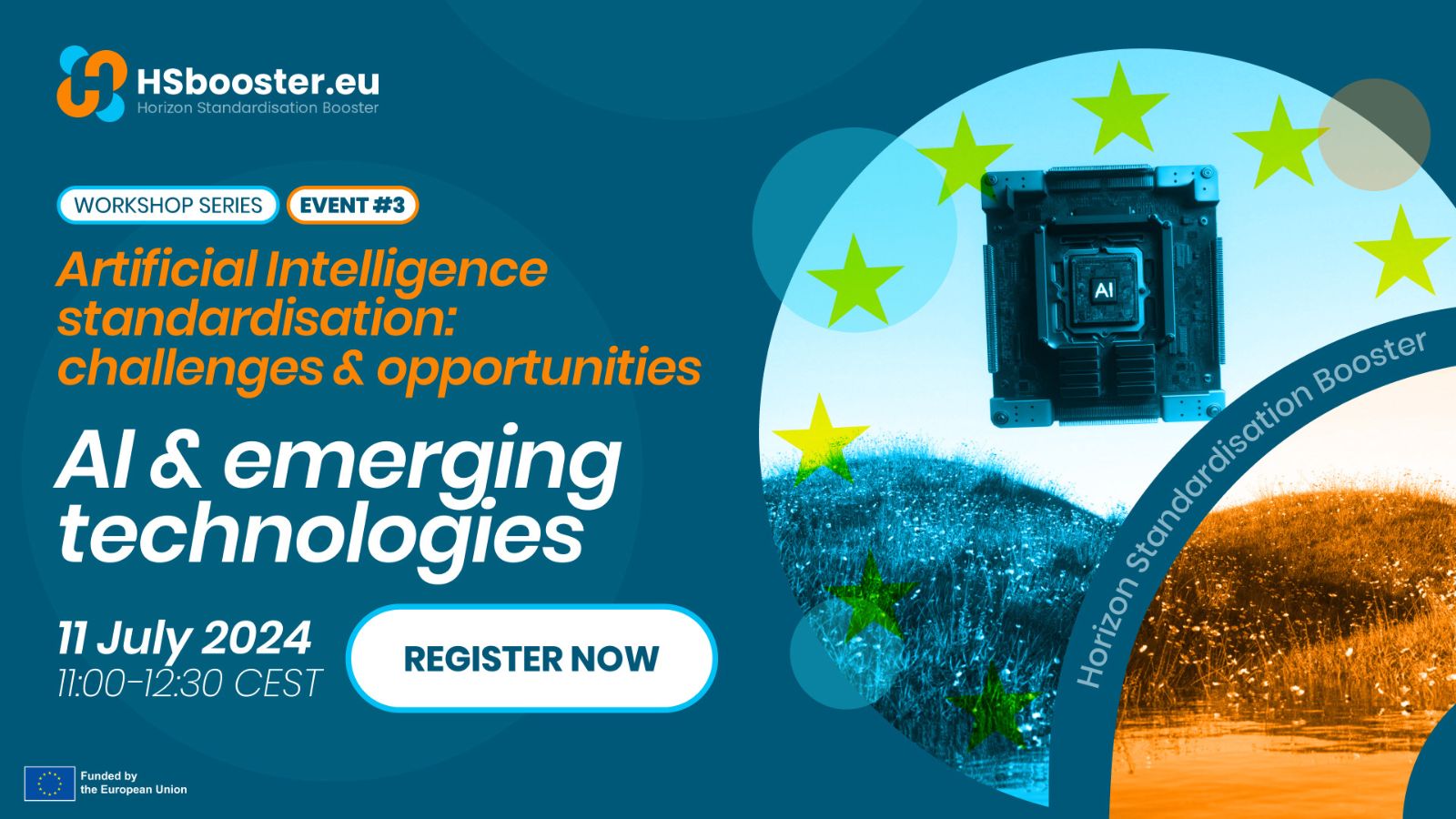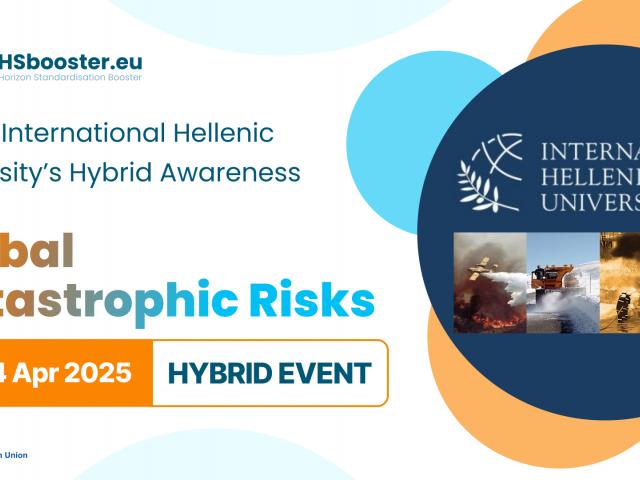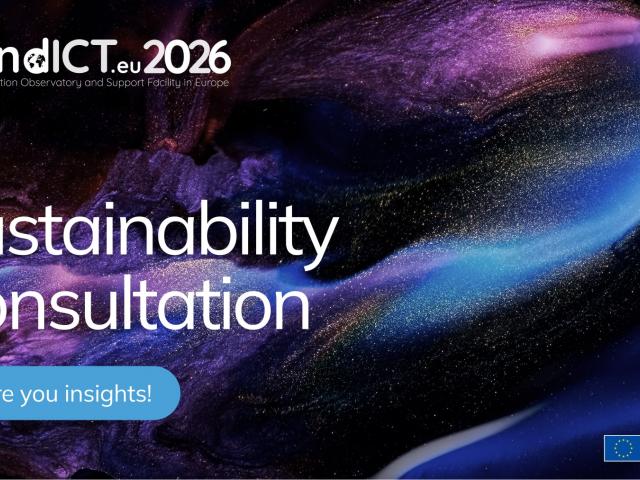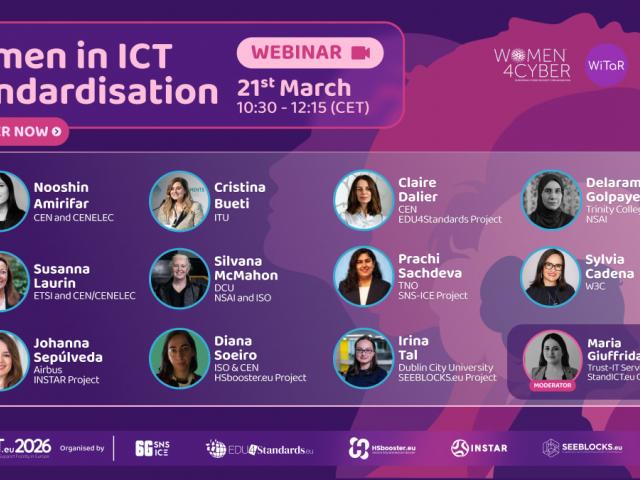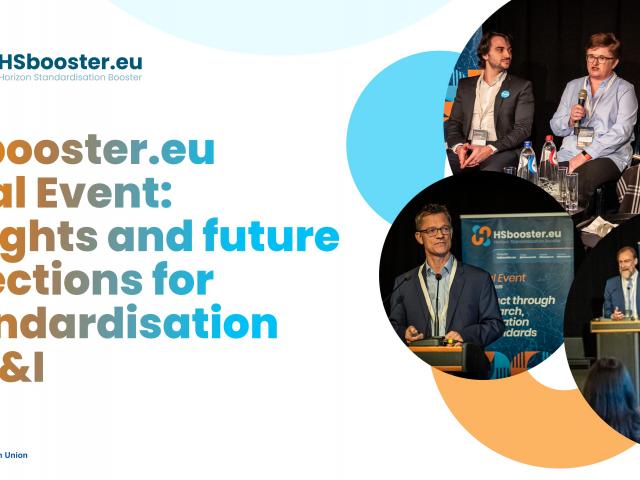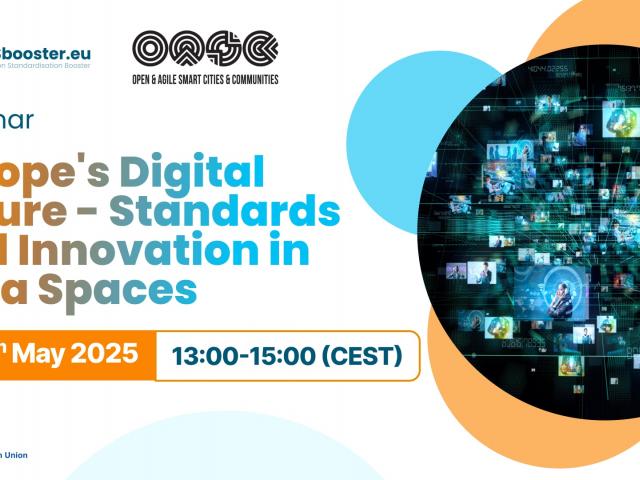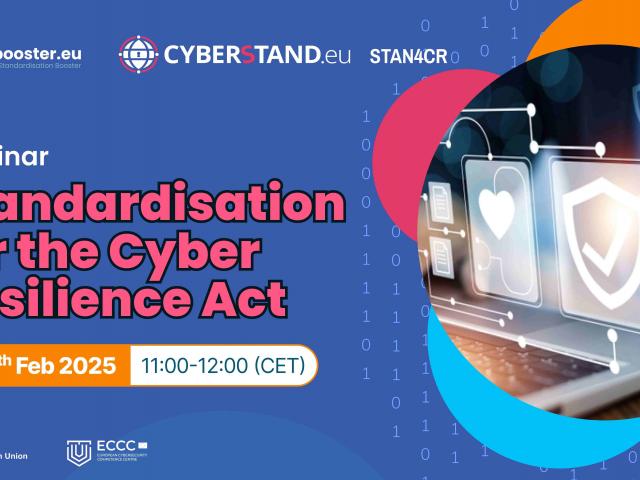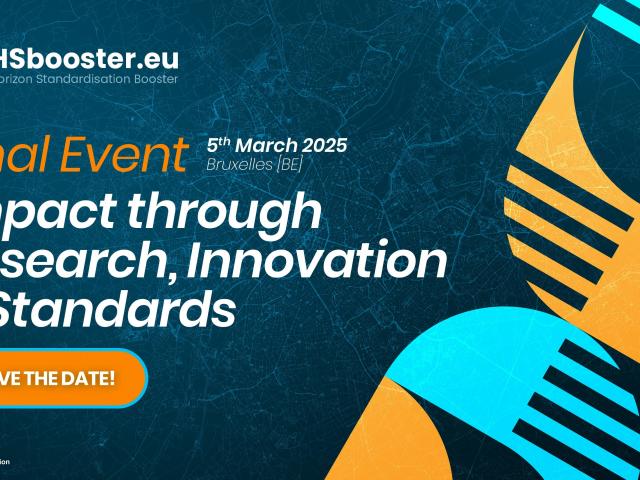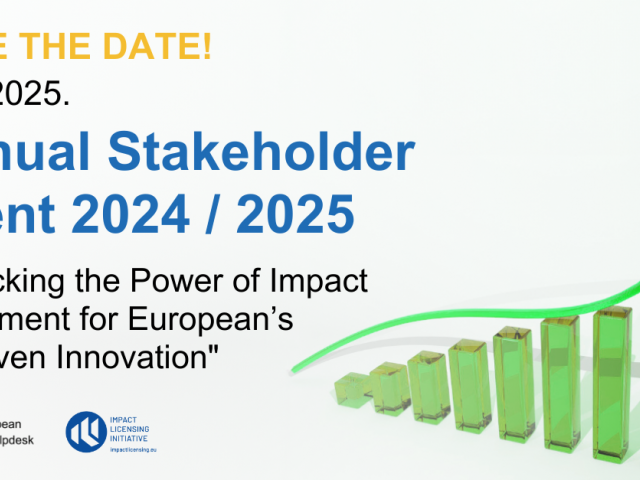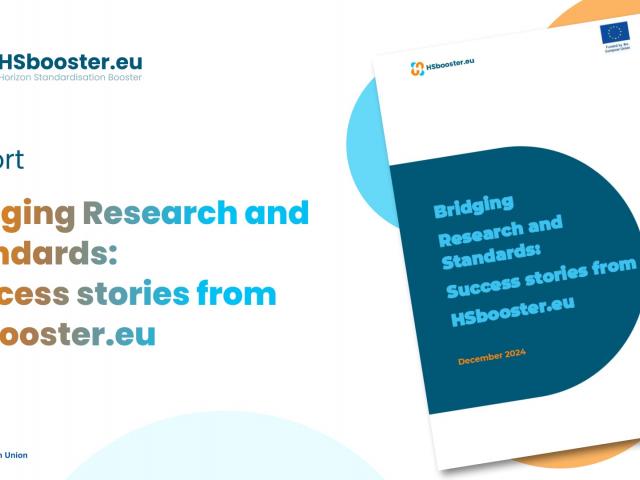AI Standardisation: Challenges & Opportunities
AI & Emerging Technologies - SME perspectives
Workshop Series #3
11 July 2024 | 11:00-12:30 CEST
Thank you for joining us during the third deep-dive workshop series on AI Standardisation.
DOWNLOAD THE RECOMMENDATION REPORT
You can now watch the recording if you missed the live session or want to revisit the content!
Revisit the AI Standardisation webinar series:
- Workshop 1 - AI Use Cases in Key Sectors, 27 June 2024
- Workshop 2 - Advancing Equity and Ethics in AI, 4 July 2024
Don't miss out on invaluable practical guidance to achieve standardisation readiness. Connect with leading experts who can help integrate your project results into influential working groups and technical committees.
Submit your application now to elevate your project's impact!
The emergence of Artificial Intelligence (AI) and Blockchain technologies presents new standardisation challenges for SMEs in Europe, requiring a proactive approach in adapting to evolving needs and requirements such as the AI Act. These challenges include addressing issues related to transparency, accountability, and data privacy, and ensuring that AI systems align with societal values. In parallel, a rapid evolution of blockchain technologies brings the need to ensure interoperability and maintain the security of their transactions. SMEs face the task of navigating the evolving landscape of blockchain standards to ensure the integrity and efficiency of their operations.
This workshop will focus on discussing SME needs and concerns in alignment with the application of the AI Act in the near future and the development of new standards.
Agenda
11:00 - 11:05 Introduction, Maria Giuffrida, HSbooster.eu
11:05 - 12:00 Standardisation in AI and the SME challenges
- Emilia Tantar - CEN-CLC JTC 21
- Olivier Blais - ISO/IEC JTC1/SC42
- Rania Wazir, Austria NSB and Co founder of Leiwand.AI
- Cedric Gouy-Pailler, KINAITICS Project
12:00 - Panel discussion moderated by Isabel Caetano, IPQ, Chair of the Technical Committee for AI and Farshid Amirabdollahian, University of Hertfordshire
12:30 - Wrap-up and conclusions
